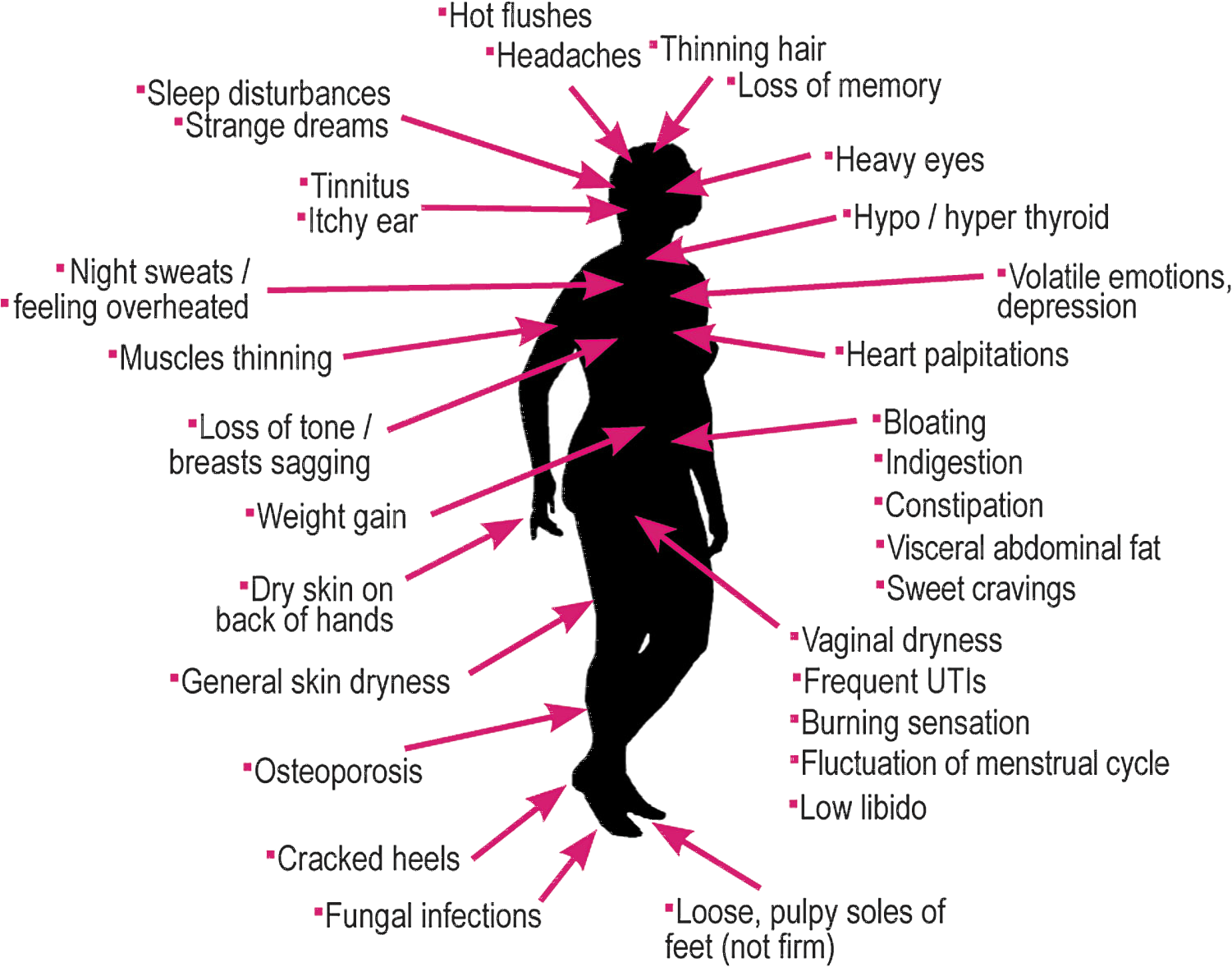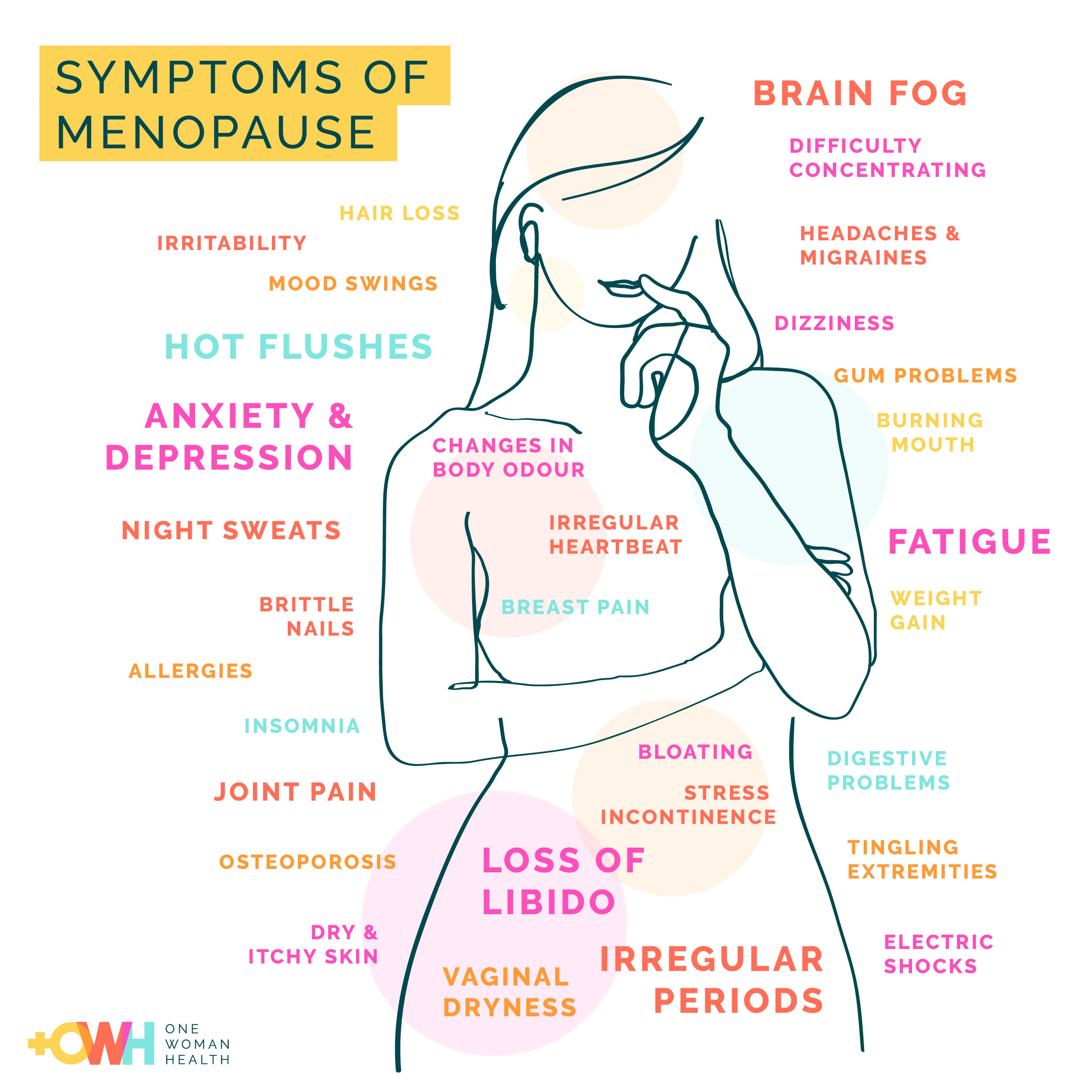Signs of menopause in women – Menopause, a natural transition in a woman’s life, is characterized by a range of physical, hormonal, psychological, and emotional changes. Understanding the signs of menopause can help women navigate this phase with knowledge and support.
As estrogen and progesterone levels decline, women may experience hot flashes, night sweats, vaginal dryness, and irregular periods. These physical symptoms can be accompanied by mood swings, anxiety, and sleep disturbances.
Physical Symptoms
Menopause is a natural biological process that marks the end of a woman’s reproductive years. It is characterized by a decline in the production of the hormones estrogen and progesterone, which leads to a range of physical and emotional changes.The physical symptoms of menopause can vary widely among women, both in terms of severity and duration.
Remember to click what causes sleep apnea in adults to understand more comprehensive aspects of the what causes sleep apnea in adults topic.
Some women experience only mild symptoms, while others may have more severe symptoms that can significantly impact their daily lives.
Common Physical Symptoms of Menopause
- Hot flashes: Sudden feelings of intense heat that spread over the body, often accompanied by sweating and a rapid heart rate.
- Night sweats: Hot flashes that occur during sleep, leading to disrupted sleep patterns.
- Vaginal dryness: A decrease in the production of vaginal fluids, which can lead to pain during intercourse and an increased risk of vaginal infections.
- Breast tenderness: Changes in breast tissue, including swelling, tenderness, and pain.
- Mood swings: Increased irritability, anxiety, and depression.
- Sleep disturbances: Difficulty falling or staying asleep, as well as waking up frequently during the night.
- Weight gain: An increase in body weight, particularly around the abdomen.
- Hair loss: Thinning or loss of hair on the scalp.
- Dry skin: A decrease in the production of skin oils, leading to dryness, itching, and wrinkles.
- Joint pain: Aches and pains in the joints, particularly in the hands, knees, and back.
The variability in symptoms is influenced by a number of factors, including genetics, lifestyle, and overall health. Some women may experience only a few of these symptoms, while others may experience a wider range. The severity of symptoms can also fluctuate over time, with some women experiencing more severe symptoms during the early stages of menopause and others experiencing more severe symptoms later on.
Hormonal Changes
Menopause marks a significant hormonal shift in a woman’s life, characterized by a decline in estrogen and progesterone production by the ovaries.
Estrogen, primarily produced by the ovaries, plays a crucial role in regulating the menstrual cycle, maintaining bone health, and influencing various bodily functions. Progesterone, also produced by the ovaries, works in conjunction with estrogen to prepare the uterus for pregnancy and regulate the menstrual cycle.
Impact of Hormonal Fluctuations
The decline in estrogen and progesterone levels during menopause leads to a cascade of physiological changes. These hormonal fluctuations can impact various bodily functions and systems, including:
- Menstrual irregularities and eventual cessation of periods
- Vasomotor symptoms (hot flashes, night sweats)
- Mood changes, irritability, and anxiety
- Reduced libido and vaginal dryness
- Increased risk of osteoporosis
- Cognitive changes, including memory and attention issues
Understanding these hormonal changes and their impact on the body is essential for women transitioning through menopause. Hormone replacement therapy (HRT) or other treatments may be considered to alleviate symptoms and support overall well-being during this life stage.
Psychological and Emotional Effects: Signs Of Menopause In Women
Menopause can bring about a range of psychological and emotional changes in women. These changes are primarily due to the hormonal fluctuations that occur during this transition. The most common psychological and emotional effects of menopause include:
- Mood swings
- Anxiety
- Depression
- Irritability
- Difficulty concentrating
- Memory problems
- Sleep disturbances
- Hot flashes
- Night sweats
- Vaginal dryness
- Loss of libido
These changes can have a significant impact on a woman’s relationships, work, and overall well-being. Mood swings, anxiety, and depression can make it difficult to maintain healthy relationships and can lead to conflict at work. Difficulty concentrating and memory problems can make it challenging to perform at work or in other activities.
Browse the implementation of off grid electricity storage in real-world situations to understand its applications.
Sleep disturbances can lead to fatigue and irritability, which can further contribute to mood swings and other psychological symptoms.
Mood Swings
Mood swings are one of the most common psychological symptoms of menopause. They can range from mild to severe and can be triggered by a variety of factors, such as hormonal changes, stress, or fatigue. Mood swings can make it difficult to maintain relationships and can lead to conflict at work or at home.
Anxiety
Anxiety is another common psychological symptom of menopause. It can range from mild to severe and can be triggered by a variety of factors, such as hormonal changes, stress, or life changes. Anxiety can make it difficult to concentrate, make decisions, and sleep.
It can also lead to physical symptoms, such as heart palpitations, shortness of breath, and muscle tension.
Depression
Depression is a serious psychological symptom of menopause that can have a significant impact on a woman’s life. It can cause feelings of sadness, hopelessness, and worthlessness. Depression can also lead to physical symptoms, such as fatigue, weight gain, and sleep disturbances.
Discover how is living off the grid illegal has transformed methods in RELATED FIELD.
If you are experiencing symptoms of depression, it is important to seek professional help.
Long-Term Health Implications
Menopause, while a natural process, can have significant long-term health implications for women. Understanding these potential risks and implementing strategies to mitigate them is crucial for maintaining overall health and well-being.The hormonal changes and physiological shifts associated with menopause increase the risk of several chronic conditions, including cardiovascular disease, osteoporosis, and certain types of cancer.
When investigating detailed guidance, check out great strength workouts now.
These risks are primarily attributed to the decline in estrogen levels, which plays a protective role in these areas.
Cardiovascular Disease
Estrogen has cardioprotective effects, including improving blood vessel function and reducing inflammation. With the decline in estrogen levels, women experience an increased risk of developing cardiovascular diseases, such as heart disease and stroke. Additionally, the metabolic changes associated with menopause, such as weight gain and altered lipid profiles, further contribute to this risk.
Osteoporosis
Estrogen plays a crucial role in maintaining bone density. Its decline during menopause leads to an increased risk of osteoporosis, a condition characterized by weakened and brittle bones. This increased risk is particularly concerning as osteoporosis can lead to fractures, especially in the hip, spine, and wrist.
Cancer
Menopause is associated with an increased risk of certain types of cancer, including breast, endometrial, and ovarian cancer. The hormonal changes and the prolonged exposure to estrogen, particularly in women who have undergone hormone replacement therapy, contribute to this increased risk.Understanding these long-term health implications and implementing strategies to mitigate risks is essential for women experiencing menopause.
These strategies may include maintaining a healthy weight, engaging in regular physical activity, adopting a balanced diet, and consulting with healthcare providers to discuss hormone replacement therapy and other preventive measures. By taking proactive steps, women can reduce their risk of developing these chronic conditions and maintain their overall health and well-being during and after menopause.
Management and Treatment Options
Menopause can cause a wide range of symptoms that can significantly impact a woman’s quality of life. Fortunately, there are various management and treatment options available to alleviate these symptoms and improve overall well-being during this transition.
Hormone Replacement Therapy (HRT)
HRT involves the use of hormones, such as estrogen and progesterone, to replace the declining levels of these hormones during menopause. HRT can effectively relieve hot flashes, night sweats, vaginal dryness, and other menopausal symptoms. However, it may increase the risk of certain health conditions, such as blood clots, stroke, and breast cancer.
Therefore, HRT should be carefully considered and prescribed by a healthcare professional after weighing the benefits and risks.
Non-Hormonal Medications
Non-hormonal medications, such as antidepressants and anticonvulsants, can also be used to manage menopausal symptoms. These medications do not replace hormones but may help alleviate specific symptoms, such as hot flashes, mood swings, and sleep disturbances. They may have fewer side effects compared to HRT but may not be as effective in relieving all symptoms.
Lifestyle Modifications, Signs of menopause in women
Lifestyle modifications can also play a significant role in managing menopausal symptoms. These include:
- Regular exercise:Exercise helps improve mood, reduce stress, and promote better sleep.
- Healthy diet:Eating a balanced diet rich in fruits, vegetables, and whole grains can help maintain overall health and well-being.
- Stress management:Techniques such as yoga, meditation, or spending time in nature can help reduce stress and improve sleep quality.
- Sleep hygiene:Establishing a regular sleep-wake cycle, creating a relaxing bedtime routine, and avoiding caffeine and alcohol before bed can promote better sleep.
- Smoking cessation:Smoking can worsen menopausal symptoms, so quitting can improve overall health and well-being.
Choosing the Best Treatment Approach
The best treatment approach for menopause symptoms depends on individual circumstances and preferences. A healthcare professional can help assess the severity of symptoms, discuss the potential benefits and risks of different treatment options, and make personalized recommendations. It is important to note that not all women will experience the same symptoms or respond to treatments in the same way.
Therefore, finding the most effective and suitable approach may involve some trial and error.
Closing Notes
Menopause is a multifaceted experience that can impact women’s health and well-being. Recognizing the signs and symptoms of menopause is crucial for seeking appropriate medical advice and making informed decisions about management options. Hormone replacement therapy, non-hormonal medications, and lifestyle modifications can help alleviate symptoms and improve overall health during this transition.
Expert Answers
What are the most common physical symptoms of menopause?
Hot flashes, night sweats, vaginal dryness, and irregular periods are among the most prevalent physical symptoms.
Can menopause cause emotional changes?
Yes, menopause can lead to mood swings, anxiety, depression, and other emotional changes.
What are the potential long-term health implications of menopause?
Menopause can increase the risk of cardiovascular disease, osteoporosis, and certain types of cancer.


